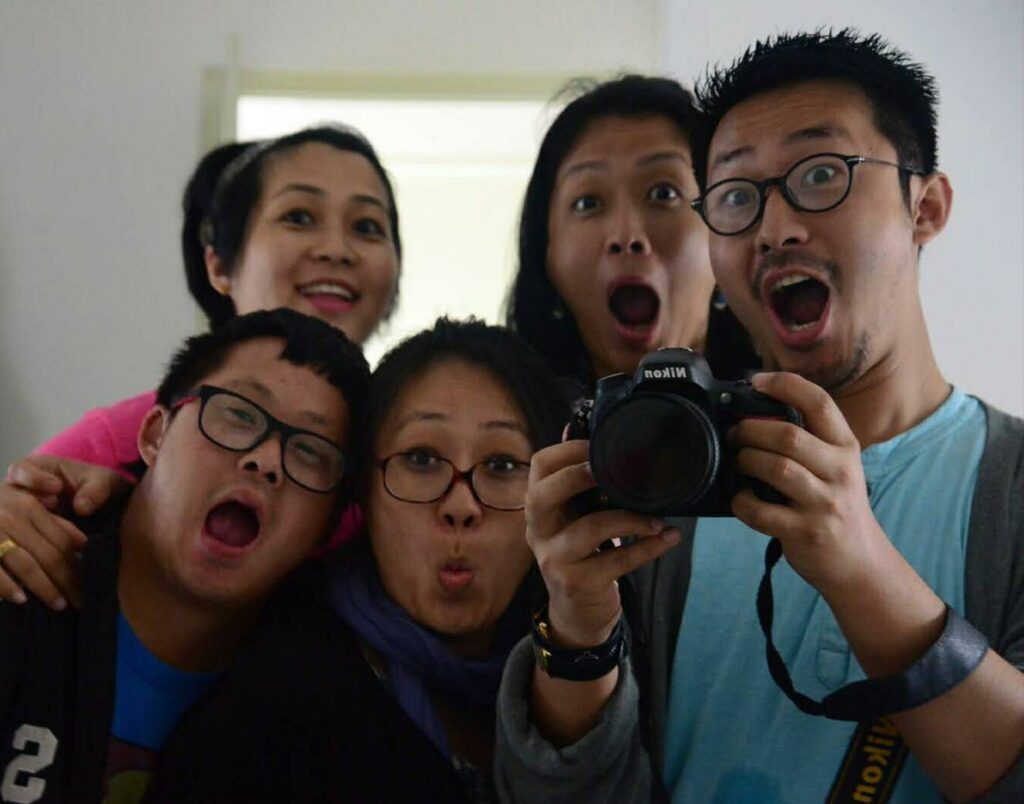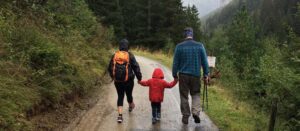For this boy I prayed and the Lord has given me my petition which I asked of Him. 1 Samuel 2:27
Imagine yourself for a moment, a little seven year old girl called Yiro; it is evening in your village in the hills of Manipur. Your dad is away on church business and your pregnant mum suddenly says the baby is on the way and you must all rush off together to Grandma’s house. I like to think it must have been something of an adventure getting yourself and your younger sister organised whilst Mum calls out instructions. That was the night Ava was born. The little girl, now a grown woman with three children of her own, related the story to me one very hot afternoon over an ice cold juice. Her lime green earrings glistened as she laughed at the memory and as we talked I felt immensely privileged and grateful to be allowed to glimpse into the life of Ava’s family.
Yiro told me it was some time later that the family took Ava down to the city of Imphal where a doctor identified that he might have Down syndrome and advised his parents to monitor his growth milestones carefully. Down syndrome is a genetic disorder caused when abnormal cell division results in extra genetic material from chromosome 21. It causes intellectual disability and developmental delays.
As time went by it was obvious that Ava was not developing as other children of his age; he sat up very late, was very slow learning to crawl and slower still learning to walk or talk. Children with any kind of developmental disorder need early intervention to ensure that they can develop and learn to their highest potential and garner skills for daily living which will give them a degree of independence. Mercifully Ava’s father was made General Secretary of the Manipur Baptist Convention and when Ava was three years old they moved to Imphal where he joined a centre for special education. During a recent visit back to the village, Yiro discovered there were lots of children with disabilities “hidden away” and she felt saddened that many do not have access to vital early intervention.
Yiro showed me lovely photographs of them all growing up. I especially liked the photo where one sibling has arms across Ava’s shoulders. Oh and there was a wonderful group picture with lots of tousled haired children squeezed been dozens of adult relatives. I had asked to meet Yiro especially to find out about what it was like growing up with a brother who has a disability and those family pictures certainly demonstrated love and the normal stuff of childhood.
“So were there any tensions?” I asked, “Did you ever resent the extra attention Ava needed from your parents?” Yiro laughed again and said only her younger brother minded. She remembered that her paternal grandmother who lived in Kohima, would visit from time to time and she would always bring extra-special edible gifts for Ava to build up his strength. It was probably when the daughters of their neighbours started to pamper Ava that her youngest brother would get a bit niggled. “My mother recognised his resentment and she took great care to shower my little brother with love so that it never got out of hand. She made sure we always had prayer time each evening and she would also pray with us individually. She said that none of her children should be a stumbling block for our father’s ministry so we’d be in trouble if we fidgeted or were naughty in church and that included Ava too.” Their mum must have done a fine job with her youngest son because when he was married a year or two ago Ava was his best man “booted and suited and in his element.”
But what about now? I have seen Ava come to church sometimes with Yiro and her husband and family and sometimes with another sister, Ashuni, and her husband and family and I know that their brother and the youngest sister live in America.
One of the greatest worries for parents of a child with disabilities is what will happen to the child/adult after they, the parents, die. We in church do well to recognise and provide support to families as they grapple with these kind of thoughts. It is not morbid but practical, and we can be available to listen and pray about these concerns. Ava’s situation was no different. His mum died leaving Ava with his father and younger sister who stayed with them to finish her studies and be a support. But I knew that Ava was now in Delhi because his father had passed away too, so I asked Yiro about that. When their father fell gravely ill he expressed his fears for Ava’s future, given that at that time Ava’s brother was in America. His daughters reassured him that it was not only sons who took on responsibilities and he seemed at peace with the idea that they would provide Ava with a loving family environment.
Now I know that for some Indian husbands it would be anathema to have their wife’s relatives living with them so I asked Yiro if in their Christian Naga culture it was quite normal for Ava to live with his sisters. Yiro did not answer for a moment then she ignored my question and instead told me her husband Thothar, and her brother-in-law Veio have always been the greatest friends with Ava; he speaks a strange mix of Hindi, English and their native language and both the men completely “get” him so much so that if the three are in the room together it sounds as if they are all speaking gibberish. She spoke with great affection about how Thothar had never had any interaction with anyone with a disability until he met Ava but had made him welcome just as Veio had done in their home. As I listened and watched Yiro’s expression I thought that her mother’s prayers for her children were being answered, these two women had found husbands who love the Lord and both are demonstrating Christian love in their relationship with Ava.
Accept one another, then just as Christ accepted you in order to bring praise to God.
Romans 15:7

When their father was ill Yiro and her husband prayed that Thothar might get a transfer to Delhi so they could help with his care as a family. The sick man died and the transfer came through just a couple of months later. Yiro and I looked at each other knowingly and shared the thought that in this matter The Lord was perhaps providing very especially for Ava, as once they moved to Delhi he had both families to fill his life and help him through the loss of his father and the permanent move from his beloved village and family home.
Ava always sits very calmly through church services, but when he was about 20 years old there was one prayer convention he attended with his father when he stood up for the alter call. Yiro says when asked why, Ava said “I have accepted Jesus, baptise me!” What music that must have been to his father’s ears! Ava was baptised the following Easter and he told them “Now I am not afraid to die. If I die I will go to Jesus.” This is from a man who does not verbalise much and who many would easily write off as simple minded.
So why am I sharing all this? These families (Ava’s parents and siblings and now his sisters’ families) mirror God’s love as shown in the life of Jesus. I am sure they are not saints, but they continue to pray together, indeed Veio says that Ava often reminds them to pray for things they have overlooked. Like our Lord, the sisters and their husbands want Ava to live life to the full, they are proud of him and love him.
I am convinced there is one clear lesson we can learn from what Yiro told me, it is one of total acceptance and the solid foundation of prayer through the generations, as demonstrated in these families. Do we who are the church have that foundation of prayer and do we model that love for people with disabilities in our congregations and communities? I pray we do.
These all with one mind were continually devoting themselves to prayer, along with the women and Mary the mother of Jesus and with his family. Acts 1:14








